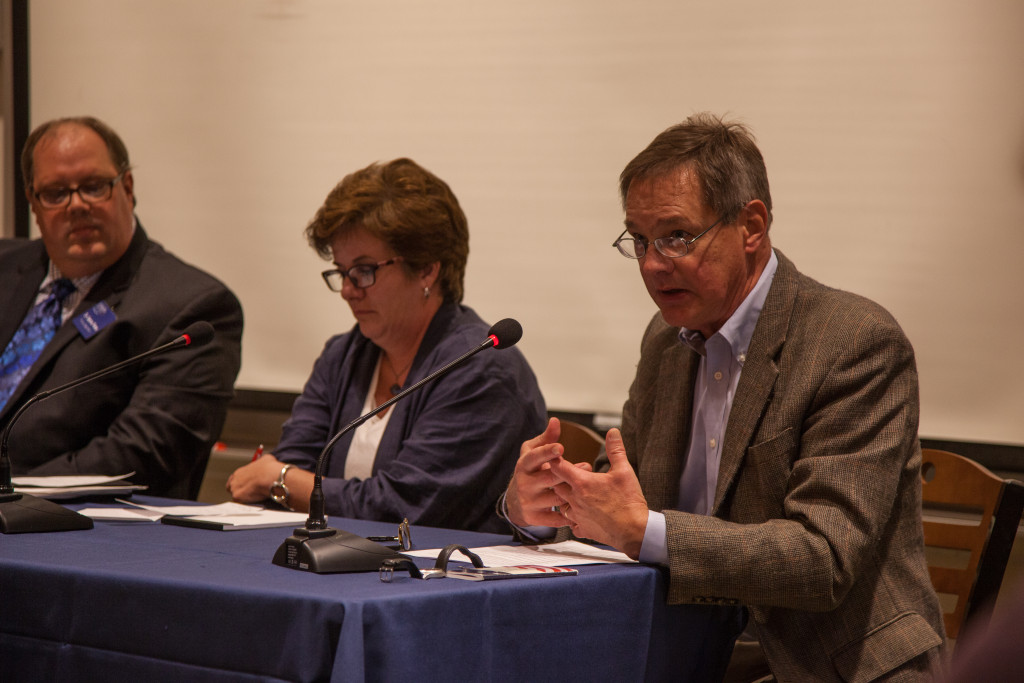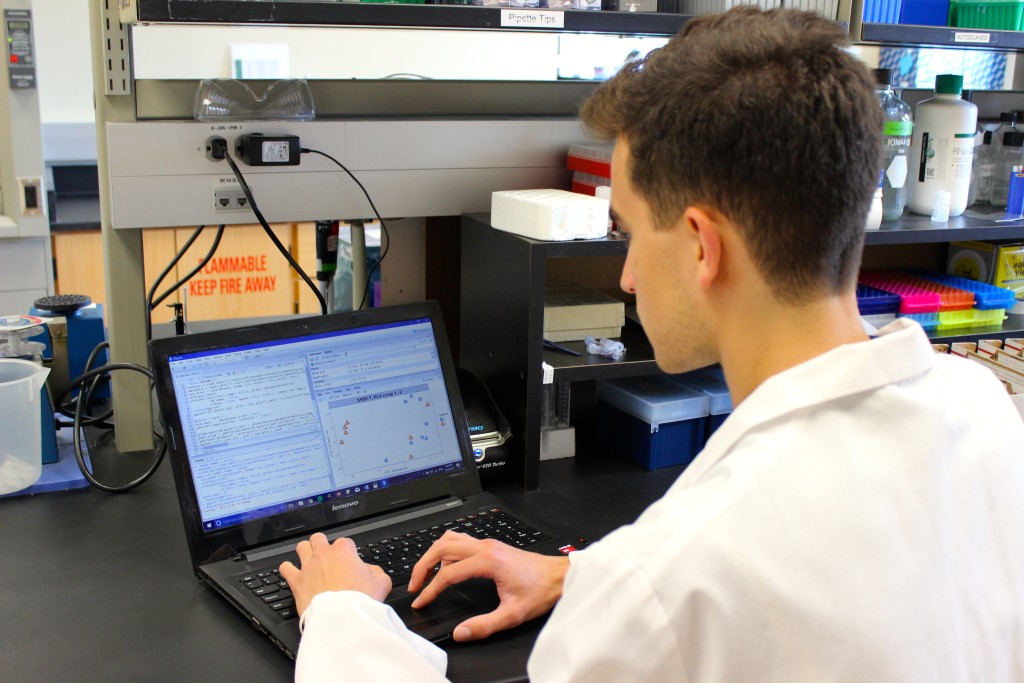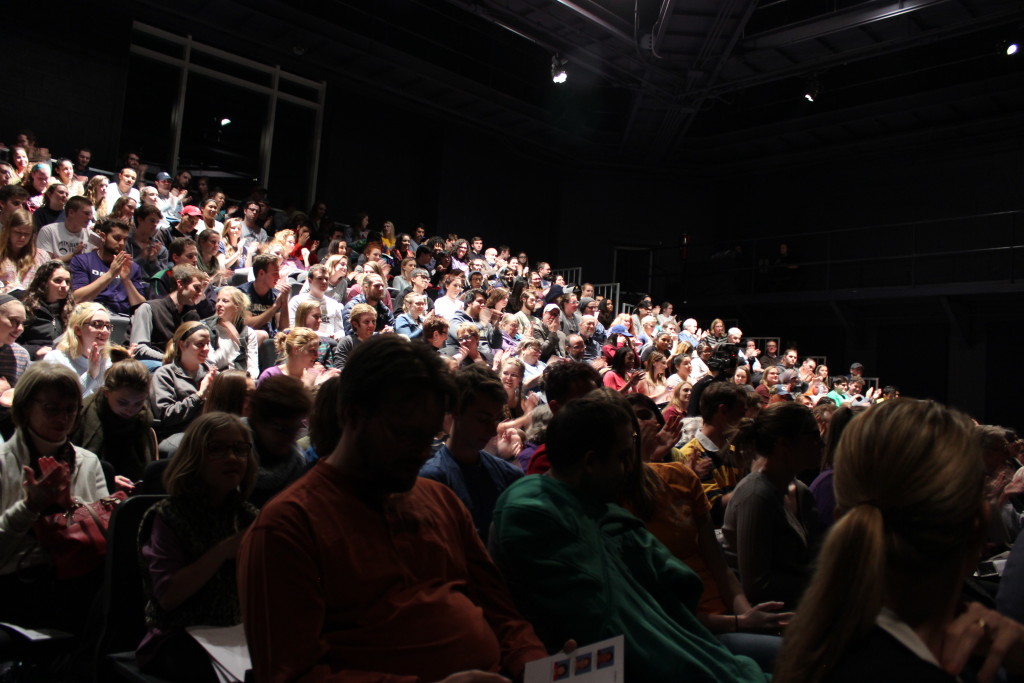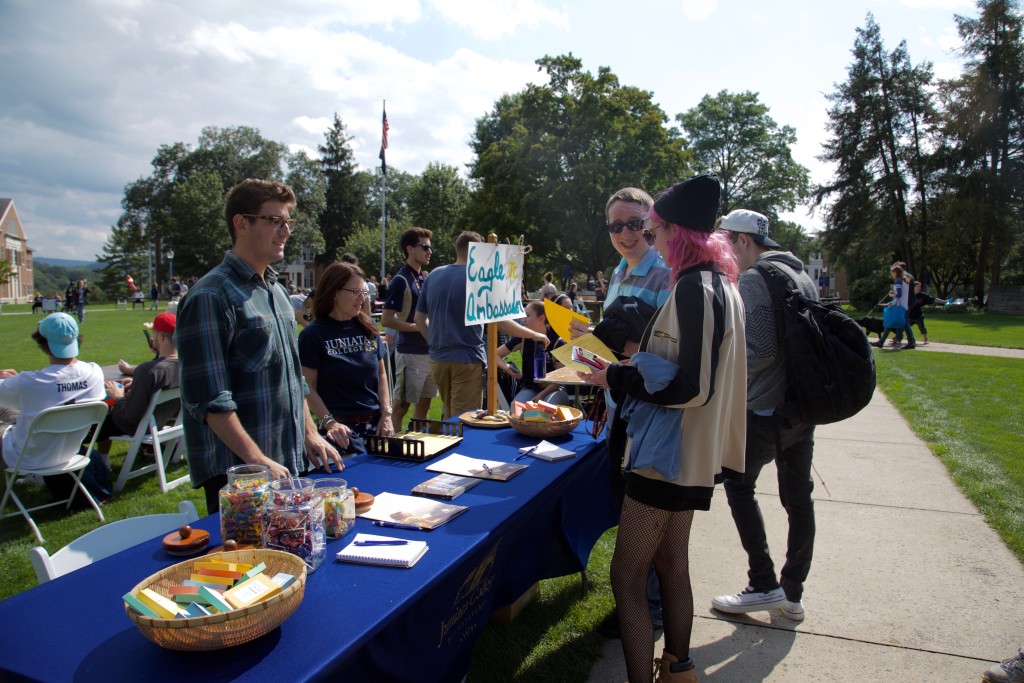Home » Student Stories (Page 30)
Category Archives: Student Stories
Recent Posts
Categories
Finding a New Passion Through Mentorship and Guidance
At one of my recent lacrosse practices we did a team building activity where we all listed a hero of ours, a hardship we’ve faced, and a highlight of our life. It took all of us a pretty long time to brainstorm up a response to each of those categories, but during my thought process I tried to narrow things down and think about it in just the context of my Juniata career thus far (which isn’t that long considering that I’m only a sophomore) and I found that the answers to all three of those questions could be rooted back to one thing, one person.

I came into Juniata on a pre-medicine track set on becoming a doctor, it was what I had wanted since I was five years old. However, I also knew that I had other passions so despite being pre-med my POE was still in politics. But, the more politics courses I took the less sure I felt about going to medical school; I was enjoying Intro to American Government far more than my chemistry classes. It wasn’t until my first semester of sophomore year that I met the professor who really helped me sort all of that out, Dr. Jack Barlow. I was in his American Political Thought class and something about his teaching style and quiet but witty and sarcastic humor really appealed to me. I eventually asked him to be my adviser and I don’t think I’ve made a better decision yet at Juniata.
Dr. Barlow has helped me through one of the largest conflicts in my life. He helped me to realize that giving up the dream I’d held for fourteen years of my life wasn’t really a loss, but an opportunity to explore something that didn’t just fascinate me but that also made me happy. He’s the perfect blend of supportive and challenging as an adviser and as a teacher. I know for a fact that I couldn’t count on one hand, and maybe not even on two hands, the number of times I’ve gone into his office in crisis mode and left feeling completely relaxed. Something about his calming demeanor and his odd knack of always magically appearing when you’re stressed out beyond belief seems to be able to resolve any problem. Dr. Barlow is basically everything your high school teachers always said you won’t find in a professor- he’s understanding, approachable, supportive, and impressively interested in his students’ lives. He’s the kind of person who asks how you’re doing and actually wants an honest answer (he’ll even call you out if he thinks you’re lying). He’s pushed me not only academically or in class, but also on a personal level to help me realize and actualize future goals. Dr. Barlow has been one of the best parts of my Juniata career thus far, and I feel pretty lucky to go to a college where professors of his quality aren’t an anomaly, but rather are the majority.
Research at Juniata: Sharing your passion with the world
Writing a thesis is hard. It is the culmination of all the hard work and late nights that you put into your research project to make it the shining testament to your will power, work ethic and ability to muscle your way through writer’s block and procrastination. It’s a long and arduous task and at the end of each day your head is spinning from all the scientific papers you’ve come through just to provide evidence for on paragraph. Yes, it’s difficult and at times all I want to do is crawl into my cozy bed and watch the snow fall outside of my window, dreaming of my childhood where my greatest worry was if I was going to have enough snow to build an igloo. Having the opportunity to write a paper that brings together the project you have been working on for months or years is rather unique, at least from my perspective.

You see, once I complete my thesis and defend it at Thesis Night in late April, I’ll be submitting it for publication to a bonafide science journal. That isn’t something that most undergraduates can do, especially if they attend a larger institution where most of the research projects are carried out by graduate students. Thankfully, Juniata doesn’t have any graduate students, barring those accountants, so young aspiring researchers or doctors, or even literary scholars and future orators all can conduct graduate level research at the undergraduate level. If you continue your project long enough, or compile enough evidence to draw a conclusion from your data you can compile it into a thesis and maybe can submit your manuscript to a journal within your field. Graduate and medical school admittance committees look very highly on that. It shows you are highly motivated and exceptional work ethic.
An additional benefit for the aspiring researcher that is considering Juniata is our annual Liberal Arts Symposium (LAS) which we will be hosting on April 19th this year. Students doing research in every department have an opportunity to present on the progress they have made on their projects either through a poster or through a presentation. When you wade through the masses that crowd around the posters and you sit in on presentations throughout the day, you really begin to understand the scope of research that is offered here at Juniata. One of the most beautiful aspects of Juniata, to me at least, is the ability for anyone in any department to conduct research on a subject that is near and dear to their heart. And they can present their findings to the school, and sometimes the rest of the world. At Juniata we are all about writing our own story and part of that, for many students, is the ability to write the story of their research.
Now if you’ll excuse me, I have another stack of papers to read through.
The Cross-section of Science and Philosphy
Zachary Hesse is a writer, editor, and sailor finishing a degree in Philosophy at Juniata College. You can find more details and works of his at zacharyhesse.com.
The Bailey Oratorical: Changing the Word one Speech at a Time
Tonight, is the annual Bailey Oratorical contest here at Juniata. The event is celebrating its 118th year which puts it up there with other long-standing and cherished Juniata traditions like Madrigal and Storming of the Arch. Unlike those events, the Bailey is a true testament to the liberal arts values that we as a college try to espouse daily. The Bailey gives Juniata students the chance to express their own unique opinions about the specific prompts put forth each year. The finalists this year will be asked to describe their dream for the future, and why they have that specific dream. It’s a prompt that I think is particularly apt given the current state of global affairs. Regardless of your political ideology or what country you live in, I think one thing that we can all agree on is that there is no small amount of uncertainty about the future of our world, and that future is in the hands of my generation.

That is one of the most beautiful things about Juniata and the faculty and staff that strive to make it a haven for academic achievement and interdisciplinary appreciation. I think the endurance and success of the Bailey speaks for itself, no pun intended. The Bailey challenges students to think about the world and tis issues and to offer up their own perspectives on the world and ways that we could maybe make it better.
Last year, contestants were challenged to think about how civic engagement and the other values that are inherent in a liberal arts education could help to heal the divides present not only in our nation, but the world over. We heard speeches from sociologists and mathematicians, historians and biologists and I think that is the testament to the true liberal arts nature of the Bailey, and of Juniata. The mathematicians aren’t just taught to see the world through numbers and equations just as the politics POEs aren’t taught to see the world through power dynamics. The Bailey and similar events like the Liberal Arts Symposium later this Spring, challenge the students at Juniata to think outside of the box of their perspective on the world and to see the world and its issues through someone else’s eyes.
I don’t know what tonight’s speeches hold, but if they are anything like past speeches I have heard, they’ll be thoughtful and insightful and will challenge the audience to think, just as much as the contestants had to think about the prompts. And maybe we might just gain a new perspective on a brighter future.
Starting a Student Club

